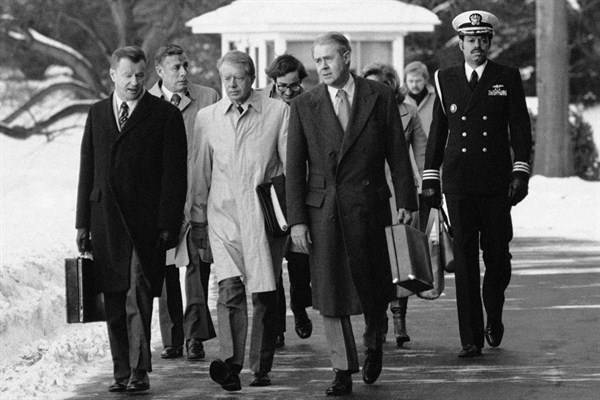The death this past week of former National Security Adviser and foreign policy intellectual Zbigniew Brzezinski calls to mind two thoughts: how rare the gift of strategic thinking, which Brzezinski possessed, truly is; and how great a contribution foreign-born intellectuals have made to U.S. foreign policy in the post-World War II era.
The foreign policy community lost one of the rare big thinkers with the death of Brzezinski at age 89 this past week. He was a commanding figure, always assessing the crises of the day with a long-term view of strategic interests. He served a Democratic president, Jimmy Carter, as national security adviser, but following his government service, his policy positions over the years would seem more compatible with conservative views. His sometimes iconoclastic takes of how American leaders should navigate the rocky shoals of the post-Cold War world could cause surprise.
In some ways, he was an odd fit for Carter, who was by temperament a more moralistic, ideals-driven leader than the coldly realist Brzezinski. But Carter needed Brzezinski’s worldliness and insights into how the Soviets and Chinese were positioning themselves vis-a-vis American power. Brzezinski’s toughness toward the Soviet Union, bred of his Polish sensibilities and his intellectual formation, put him at odds with others in the Carter administration, including then-Secretary of State Cyrus Vance, over issues such as arms control. But after the Soviet invasion of Afghanistan, Carter leaned in Brzezinski’s direction, seeing the Soviets as more of a threat than a partner to engage. What came to be called the Carter Doctrine, which called for preventing any outside power from dominating the Persian Gulf, was Brzezinski’s idea, with the lasting legacy of establishing a strategic rationale for an American presence in the Gulf region.

